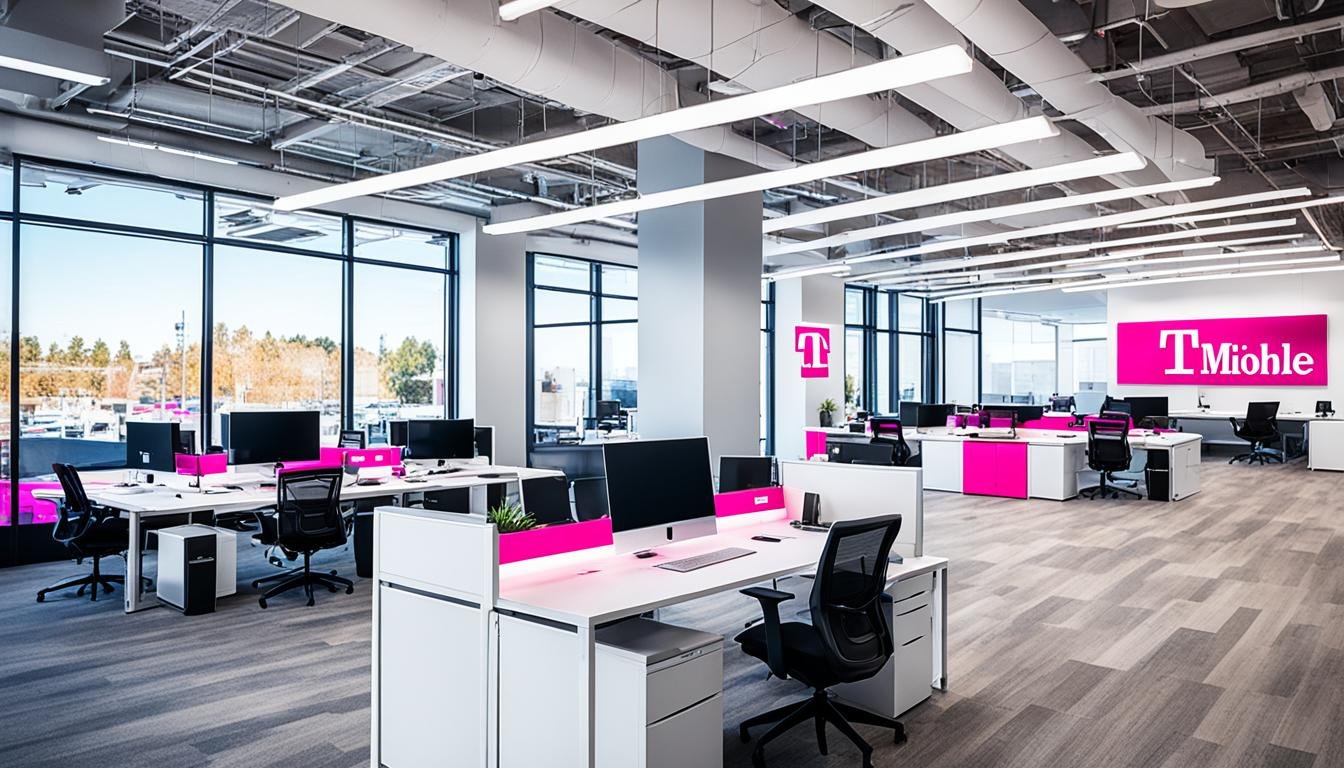As an entrepreneur, embarking on the journey of starting your own business is both exciting and challenging. The thrill of building something from the ground up is tempered by the ever-present risks and uncertainties that come with it. In this dynamic landscape, small business insurance plays a vital role in safeguarding your venture and providing the necessary protection to navigate through the ups and downs.
But have you ever wondered:
Do you truly understand the significance of small business insurance and its impact on your entrepreneurial journey?
It’s a question worth pondering. Whether you’re launching a tech startup or opening a boutique store, having the right insurance coverage is vital to shield your business from potential financial hardships, legal issues, and unforeseen events that can jeopardize all your hard work.
Key Takeaways:
- Small business insurance is essential for protecting your venture and ensuring its long-term viability.
- Understanding the significance of insurance coverage is crucial for mitigating risks and adapting to the ever-changing business landscape.
- Choosing the right insurance policy tailored to your business’s specific needs is key to effective protection.
- Without insurance, your business may be vulnerable to financial liabilities, legal disputes, and other potential crises.
- Stay tuned to learn about the types of insurance every small business needs and how to strengthen your venture through risk mitigation practices.
11 Types of Insurance Needed for Small Businesses
When it comes to protecting your small business, having the right insurance coverage is essential. But with so many options available, it can be overwhelming to determine which types of insurance you really need. The insurance coverage required for your small business depends on several factors, including the nature of your business and the state you operate in. It’s important to familiarize yourself with the various types of insurance available and assess which ones are most relevant to your specific needs.
- General Liability Insurance: This type of insurance protects your business against claims of bodily injury, property damage, and advertising injury.
- Product Liability Insurance: If your business manufactures or sells products, product liability insurance provides coverage against claims related to product defects.
- Professional Liability Insurance: Also known as errors and omissions insurance, this coverage protects professionals, such as doctors, lawyers, and consultants, against claims of negligence or inadequate work.
- Commercial Property Insurance: This insurance protects your business property, including buildings, equipment, and inventory, against damage or loss due to events like fire, theft, or natural disasters.
- Business Interruption Insurance: In the event of a covered loss that forces your business to temporarily close, business interruption insurance can help cover ongoing expenses and lost income.
- Workers’ Compensation Insurance: If you have employees, workers’ compensation insurance is usually required to cover medical expenses and lost wages in the event of a work-related injury or illness.
- Commercial Auto Insurance: If your business uses vehicles for work purposes, commercial auto insurance provides coverage for accidents, property damage, and liability.
- Cyber Liability Insurance: In today’s digital age, cyber liability insurance protects your business against data breaches, cyberattacks, and other cyber-related risks.
- Employment Practices Liability Insurance (EPLI): EPLI protects your business against claims related to workplace discrimination, harassment, wrongful termination, and other employment-related issues.
- Directors and Officers Liability Insurance (D&O): D&O insurance provides coverage for the personal liability of directors and officers in the event of lawsuits or claims related to their management decisions.
- Business Owner’s Policy (BOP): A BOP combines multiple types of insurance coverage into a single policy, typically including general liability, property, and business interruption insurance.
While this list covers some of the most common types of insurance needed for small businesses, it’s important to evaluate your specific risks and consult with an insurance professional to tailor a policy that meets your unique needs.
Remember, having the right insurance coverage in place is crucial to protecting your small business and ensuring its long-term success.
Strengthening Your Small Business through Risk Mitigation Practices
When it comes to protecting your small business, robust insurance coverage is just the beginning. Adopting risk mitigation practices can further safeguard your venture and promote long-term success. Here are some key strategies to consider:
1. Identify and Assess Risks: Take the time to identify potential risks specific to your industry and location. Conduct a thorough risk assessment to determine the likelihood and potential impact of each risk on your business.
2. Implement Safety Measures: Put measures in place to minimize the occurrence and impact of identified risks. This may include enhancing security protocols, implementing safety procedures, or investing in quality equipment.
3. Document Policies and Procedures: Clearly define and communicate policies and procedures for your employees. This will help ensure consistency in operations and reduce the chance of errors or omissions that could lead to liability issues.
4. Develop a Business Continuity Plan: Prepare for unexpected disruptions by creating a business continuity plan. This plan should outline steps to be taken in the event of a crisis, such as natural disasters or cybersecurity breaches, and ensure that your business can continue to operate smoothly.
5. Regularly Review and Update: Risk mitigation is an ongoing process. Regularly review and assess your strategies to stay ahead of emerging risks and adapt to changes in your business or industry.
By implementing these risk mitigation practices alongside your small business insurance coverage, you can fortify your business against potential threats and position yourself for long-term success.
FAQ
What types of insurance do small businesses need?
The types of insurance coverage needed for small businesses vary depending on the nature of the business and the state they operate in. However, some commonly required insurances include general liability insurance, property insurance, professional liability insurance, workers’ compensation insurance, and commercial auto insurance.
How can I find affordable small business insurance?
To find affordable small business insurance, it’s recommended to compare quotes from multiple insurance providers. Additionally, you can consider bundling policies, increasing deductibles, adopting risk management strategies, and seeking out insurance discounts available for small businesses.
What is the best small business insurance coverage?
The best small business insurance coverage will depend on your specific business needs. It’s important to assess the risks associated with your industry and tailor your insurance coverage accordingly, ensuring that you have sufficient protection for your property, liability, employees, and any specialized risks your business may face.
How can I get small business insurance quotes?
You can get small business insurance quotes by reaching out to insurance providers directly or using online insurance marketplaces that allow you to compare quotes from multiple providers. Be sure to provide accurate and detailed information about your business to get accurate quotes.
What is small business liability insurance?
Small business liability insurance, also known as general liability insurance, provides coverage for legal expenses, medical costs, and damages in case your business is held responsible for bodily injury, property damage, or advertising/ personal injury claims. It helps protect your business from financial losses due to liability-related lawsuits.
Can I get commercial insurance for my small business?
Yes, you can get commercial insurance for your small business. Commercial insurance covers a range of risks faced by businesses, such as property damage, liability claims, loss of income, and employee injuries. It offers comprehensive protection tailored to the specific needs of commercial enterprises, including small businesses.
How do I choose the right small business insurance provider?
When choosing a small business insurance provider, it’s important to consider factors such as their financial stability, reputation, customer service quality, coverage options, and affordability. You can also seek recommendations from other business owners or consult with an insurance broker to help you find the right provider.
How much does small business insurance cost?
The cost of small business insurance varies depending on factors such as the size of your business, industry, location, coverage needs, and claims history. To get an accurate idea of the cost, it’s best to request quotes from insurance providers based on your specific business details.
Are there health insurance options for small businesses?
Yes, there are health insurance options for small businesses. You can explore group health insurance plans or consider partnering with professional employer organizations (PEOs) that offer access to health insurance benefits for small businesses. Additionally, you may qualify for tax credits or subsidies through the Small Business Health Options Program (SHOP).












One thought on “Protect Your Venture with Small Business Insurance”